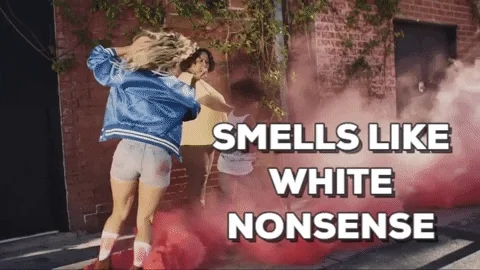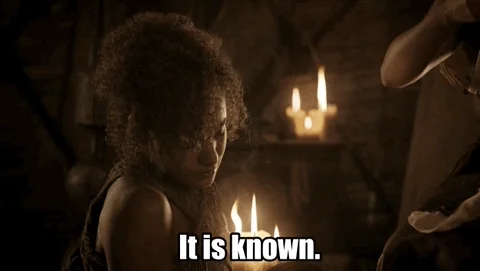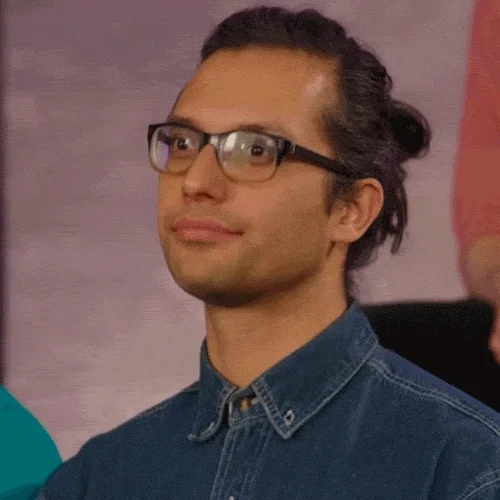Here’s hoping it ‘triggers’ the end of that person’s career as a teacher.
(Yeah, I know.)
I’m not in all ashamed of my skin color. I am ashamed of the shit that other white people keep pulling
It boggles my mind how they can’t see how hypocritical they are. Because of their own insecurities, they have cost good educators their jobs

Speaking of good educators…
RE “The 1619 Project”
(source: NYT)
(excerpt) An expert, historian Robin D.G. Kelley, talks in the capitalism episode about how the modern ideology around race was created to divide white laborers — like indentured servants — from enslaved Black people and Black people overall. The white, landed elite was exploiting all of these people. By creating race and giving white people this honorary status and certain legal and societal rights, that was an effective way to divide those who were being exploited from one another.
That has effects today. We know Black people are more likely to be unemployed and more likely to live in poverty. But the American worker overall, no matter their race, is generally doing worse than those in other Western industrialized countries.
Three and a half years ago, The New York Times Magazine published The 1619 Project. It argued that 1619, the year the first slave ship is widely believed to have arrived in what is now the U.S., was as foundational to America as the year 1776, and that the legacy of chattel slavery still shapes our society. Essays from historians, scholars and others covered issues including capitalism, criminal justice and music, and sparked a national debate about race and history that is still raging.
Today, “The 1619 Project” premieres as a documentary series on Hulu. I spoke to The 1619 Project’s creator, Nikole Hannah-Jones, about what went into making the documentary and how the events of the past few years like the pandemic and racial justice protests shaped it.
German: American slavery ended generations ago, but one of the project’s arguments was that slavery’s legacy is still very much with us. Where do you see that most clearly?
Nikole: Every episode in the documentary is about modern America. It is following and it’s taking on some institution or aspect of modern American life and then showing how slavery has shaped that institution.
There’s a theme throughout the series: Black people suffer the most from the legacy of slavery, but most Americans suffer from it to some degree.
In one episode, we talk about how capitalism in the United States was shaped largely by chattel slavery and the exploitation of labor, even when workers are paid. And it hurts all of us because we have accepted inequalities in the United States, particularly among workers, no matter their race. We follow the effort to unionize Amazon facilities on Staten Island and in Alabama, where workers are organizing to address those disparities.
One way I’ve heard experts describe this is that politicians and other elites have used racist language and policies to divide white working-class and Black working class people who would otherwise share a common cause. Is that what you’re speaking to?
Yes. An expert, historian Robin D.G. Kelley, talks in the capitalism episode about how the modern ideology around race was created to divide white laborers — like indentured servants — from enslaved Black people and Black people overall. The white, landed elite was exploiting all of these people.
By creating race and giving white people this honorary status and certain legal and societal rights, that was an effective way to divide those who were being exploited from one another.
That has effects today. We know Black people are more likely to be unemployed and more likely to live in poverty. But the American worker overall, no matter their race, is generally doing worse than those in other Western industrialized countries.
Who’s the most interesting person you interviewed for this?
One who stuck out is MacArthur Cotton, who was a member of the Student Nonviolent Coordinating Committee, or S.N.C.C., a student-led civil rights organization in the 1960s. He dropped out of college to fight to democratize America. He goes to prison for trying to register voters, where he was tortured — strung up by his wrists until he defecated on himself. He said the only thing that saved his life was that there was a group visiting the prison that day. I got emotional hearing that story and said, “I’m sorry that you had to go through that.” And he was like, “Don’t be sorry. This is what we had to do.”
Though The 1619 Project got a positive reception when The Times published it, it also became a political flash point. Conservative politicians have criticized it, and some states have banned it from curriculums. Why do you think that is?
The reason The 1619 Project needed to exist in the first place is because we have not, as a nation, wanted to grapple with this issue. For those who believe in American exceptionalism, they saw The 1619 Project as a direct challenge to that. Telling histories this way — centering slavery, centering marginalized people — has always been contested.
I think that is because it is very hard to buy into the notion of American exceptionalism and then deal with the history of Black people in this country.
Beyond that response, a lot has happened since The 1619 Project came out — Covid, the 2020 protests about police brutality and the Jan. 6 riot, to name a few events. Have they changed your thinking about the project?
A lot of it has confirmed and affirmed the thesis. We are still struggling with this founding paradox and which type of country we are going to be and who has the right to be part of “we the people” and determine our self-governance.
Many Americans want to understand: How does George Floyd happen? How does the Jan. 6 insurrection happen in this country? They feel they have not been equipped with the history they need to grapple with the through line in all these events. That is why this project exists.
What was different about doing this project for TV versus doing it for a magazine or book?
Well, I spent my entire life in print. It was my collaborators — Roger Ross Williams, who’s an executive producer; Shoshana Guy, the showrunner; and all the other producers who worked with me to map out how to translate this to television. The essays are dense.
I can take as long as I want to read a complicated passage when I’m reading something. But on TV, you have to take it in all at once. So there was a lot of figuring out: How do we translate all of this to a visual medium? Where do we film? How much voice-over? How much action?
I didn’t go into it with the hubris that I knew how to do this. I knew I had to rely on the experts in making television.
The catheter to deliver the anesthesia should have gone about 4 inches into her lower back. Instead, he kept inserting the line, threading it in and up more than 13 inches, a state medical review board later found.
Sanity check! Did someone mix Metric and Imperial units? 4cm seems like a more common epi length than 4", and would they even have a 13" needle and catheter?
eta: It’s still fucked up, no matter the units.
According to The New York Times, Dr. Shelchkov’s medical license was eventually revoked in late 2021. Left disabled by a severe COVID infection and unable to afford the cost of living in New York, he moved back to Russia in 2022.
There is some small level of poetic justice, at least.
Ugh…
Also on Friday morning, RowVaughn Wells, Tyre Nichols’ mother, told CNN she “feels really sorry” for the five Black police officers, whom she said beat her son “to a pulp”.
“They have brought shame to their own families. They brought shame to the Black community. I just feel sorry for them. I really do,” she said.
That poor woman… she still can have grace for what these sick bastards did to her baby…
Davis said the fact the officers are Black “takes off the table that issues and problems in law enforcement [are] about race”.
Does it though? Doesn’t that assume that Black people can’t harbor anti-Black bias, just because they are Black? Doesn’t track with reality.
IMO, Black cops are often just as racist as White ones; if not more so.
There’s no hatred quite as toxic as self hatred.
I figured that was the whole point of fast-tracking the firing of the cops and release of the footage in this case. ![]()

How else did they join the cop club? Even if they didn’t really feel that way, they woukd have to demonstrate it to be accepted by the system.
Well, sort of? It’s not white cops who are racist, it’s cops who are racist. Somehow, that doesn’t make it better. And, as had been pointed out upthread, white male cops enjoy the protection of the system far more than not-white, not-male ones do.
For sure… I totally agree with both you and @Melizmatic about that…

that’s my assumption too. just as poc often have to work twice as hard to get positive recognition at normal jobs, i can see that a black police officer would have to work extra hard to conform
and as everyone is saying, it’s totally proven out by how quickly charges are brought against black officers when white officers are so well protected no matter what they do
i can imagine they might feel they have to treat black suspects harshly or they will get called out as being too soft, or as “reverse racists” - doing that day in and day out, it’s probably all too easy to cross into outright violence.
the only way to escape it, is probably not to be a cop at all
I wonder if they thought they could get away with it like White cops have seemingly always gotten away with it.
Michael Harriot’s input on Black vs. Blue:
National treasure, that man.